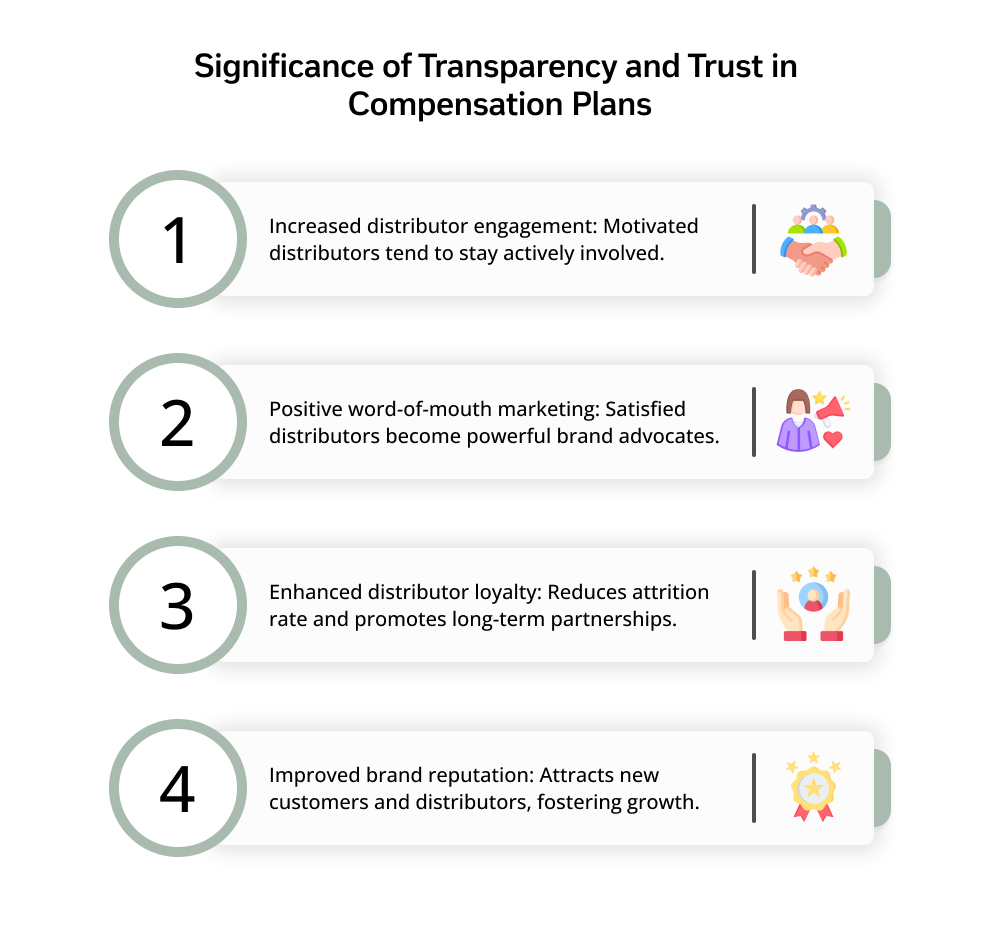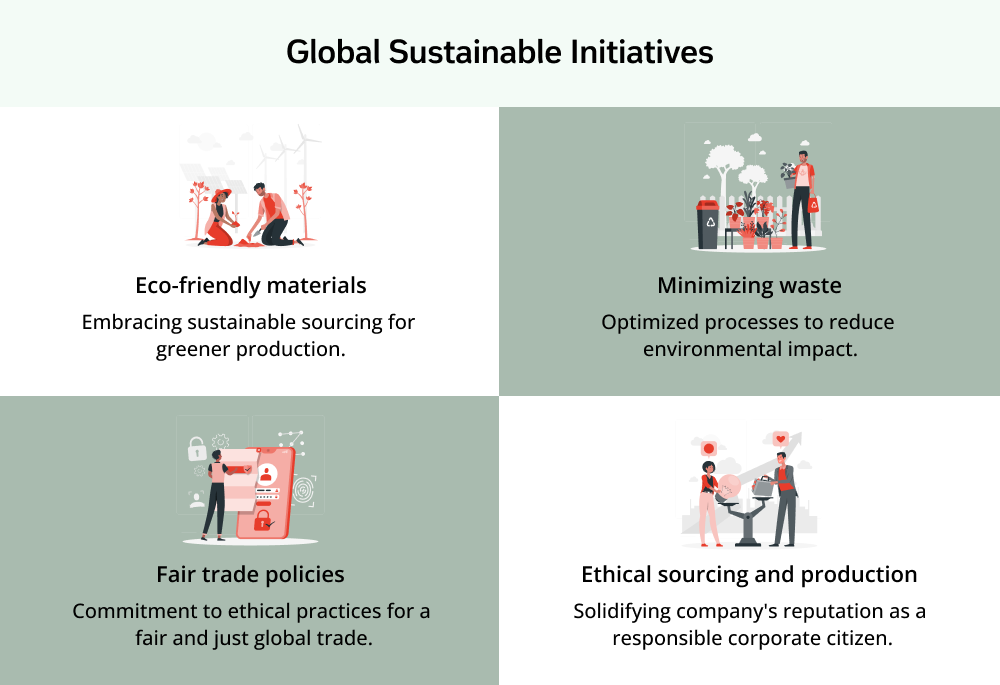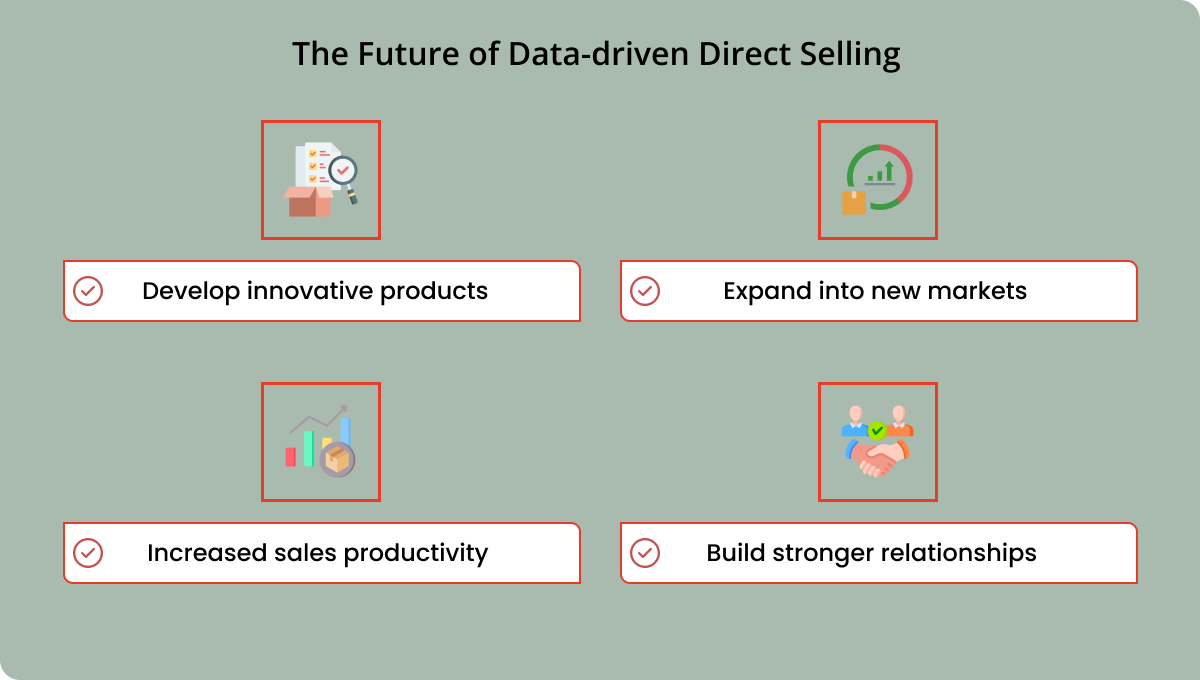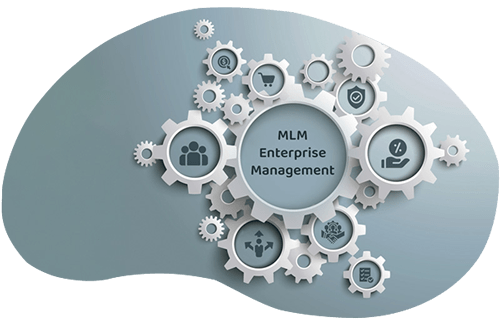Close your eyes and step back in time to an era when a single idea, nurtured by determination and innovation, not only caught the world's gaze but also reshaped the way we see possibilities.
Yes, we're talking about the direct selling industry. The concept emerged during the 19th century, and since then, the sector has fundamentally transformed the dynamics of sales, entrepreneurship, and revenue generation. It marked a shift from traditional corporate structures toward a more inclusive and empowering business approach.
Today, we find ourselves at the threshold of a global direct selling breakthrough. Thanks to the rise of the internet and social media, and the growing demand for products and services in new markets. This has created a unique opportunity for the sector to expand their reach. So, here we are on a quest to gain a comprehensive understanding of the global footprint of direct selling.
The call for a breakthrough: A new paradigm emerges
Throughout the years, the direct selling industry continued to evolve, adapting to shifts in customer preferences and market trends. However, the 21st century brought a digital transformation with direct selling companies harnessing the power of emerging technologies, social media platforms, and advanced marketing strategies to reach a global audience.
At the forefront of this digital shift stands Epixel MLM Software, providing robust tools and solutions to network marketing companies. This software empowers businesses by providing comprehensive solutions, not just for streamlining operations but also for efficiently managing compensation plans, enhancing distributor engagement, covering a broader range of functionalities. From analytics and reporting tools to customizable user interfaces, its capabilities extend far beyond, catering to the diverse needs of businesses.
Gearing up for international edge
It’s a leap forward!
With the world becoming increasingly interconnected and customers seeking diverse and high-quality products, direct selling companies are responding with innovative and customer-centric approaches to meet their needs. These strategies encompass a spectrum of must-have features, extending from advanced ecommerce platforms to regulatory compliance monitoring.
This empowers distributors to target and engage customers more effectively across borders. By investing in these features, distributors can expand their reach, build stronger relationships with customers, and increase sales.
Consider Amway, once a humble basement startup in the 1950s and has since grown into one of the top network marketing companies with a loyal customer base in over 100 countries. Amway has stood the test of time by embracing cutting-edge features, such as:
Robust ecommerce platform in multiple languages and currencies.
Personalized product recommendations based on customer’s purchase history.
Data and analytics to tailor the marketing and sales efforts.
Amway is global.
To make another point here, the company is still setting trends. According to recent reports, Amway has committed to a substantial global investment of over $300 million until 2024. This investment is geared towards propelling innovation, advancing scientific research, fortifying digital technology, and fostering entrepreneurship.
Quite fascinating, don’t you think?
So, now let’s embark on discovering the potential features fueling international transformation in direct selling.
Pioneering advanced ecommerce platforms
The utilization of advanced ecommerce platforms stands as a primary force behind this transformation. Such platforms provide businesses with the tools they need to manage their operations, reach a wider audience, and drive sales growth.
Now let’s also learn about some of the essential ecommerce features for global reach.
Integrated MLM software: Seamlessly manage distributor networks, commissions, and compensation plans.
Powerful marketing tools: Create targeted campaigns, track customer engagement, and generate leads.
Omnichannel capabilities: Sell, track and manage across multiple channels, including websites, mobile apps, and social media.
Real-time inventory management: Keep track of stock levels and prevent overstocking.
Robust reporting and analytics: Gain insights into sales trends, customer behavior, and distributor performance.
Expansion with must-have features
Picture your business, with aspirations to reach new horizons, from the United States to Germany and far beyond. Such an expansion presents both a range of challenges and promising prospects. So, let's uncover how advanced software solutions can be your dynamic partner, facilitating your expansion endeavors.
Payment integration: Back-office payment integration with renowned platforms like PayPal, Stripe, and PayQuicker for seamless transactions.
Multi-currency support: Accepts multiple currencies and payment methods, simplifying and securing customer transactions worldwide.
Multilingual support: IP-based language switching to auto-detect customer language and display the website or app in that language, enhancing international customer experience.
Social commerce integration: Social selling where distributors share their products directly, facilitating a more immersive and interactive shopping experience for customers.
Leverage AI: Natural language processing through AI-driven chatbots for optimized, personalized customer communication.
Blockchain technology: Enhances security and efficiency for MLM inventory tracking, distributor commissions, and payment processing.
Direct selling companies can forge warmer, more personal relationships with their customers, creating a win-win scenario.
Highly compliant ecommerce MLM software streamlined international business expansion effortlessly.
Explore Case Study➔Global perspectives on personalized products and experiences
Customers expect faster delivery, easy access to information, and seamless shopping, regardless of their geographic location. Direct selling companies grapple with the challenge of catering to diverse global audiences with varied needs, preferences, and expectations.
One size fit nobody is the new norm in today’s world. Global customers value the products and services that cater to their unique needs.

71% of consumers expect companies to deliver personalized interactions
76% voice dissatisfaction when their expectations are not met
Source: McKinsey & Company
The impact of personalization extends beyond customer satisfaction, influencing various key performance indicators and delivering next-level customer experience. It can lead to a number of positive outcomes, including:
Increased customer loyalty and engagement
Reduced customer churn
Improved customer satisfaction and advocacy
Increased brand awareness and reputation
Stronger competitive advantage
Increased market share and profitability
Faster-growing companies generate 40% more revenue from personalization compared to their slower-growing counterparts. So, whether it's designing a custom pair of sneakers, receiving personalized product recommendations, building one-on-one relationships with customers, or tailoring digital content to individual interests, businesses that can offer personalized experiences are likely to thrive.
Diverse compensation plan management
The laws governing MLM compensation plans vary from country to country, adding layers of complexity. In some countries, there are restrictions on the percentage of commission that can be paid to distributors, others have no such restrictions. In this context, a clear, concise, and transparent compensation plan is crucial for building trust and fostering a loyal distributor network.

Adapting to compensation plans for global markets means suiting the specific dynamics and regulations of those markets. When you are looking for global expansion, you are also considering the cultural expectations, local market conditions, and legal requirements of each country. This requires customization of your compensation plans to align with the local landscape in order to attract top talents and comply with regulatory frameworks.
Robust brand loyalty with international network
In this information-rich era, customers are becoming more cautious. They want to know the story behind the products they buy, the values a company upholds, and the impact of their purchase. Right from sourcing to production, transparency builds trust. Companies that openly communicate their practices and values establish an emotional bond with the brand.
Developing a global communication strategy also enhances customer satisfaction, thereby fostering brand loyalty. Utilizing technology that has built-in language support is essential in strengthening the brand’s presence at an international level.
In a nutshell, just as transparency builds trust with customers, it also becomes a fundamental element in establishing a robust and trustworthy relationship between companies, their distributors, and customers.
Global appeal to sustainable lifestyle
Gen Z is in action and soon will be the next dominant generation. They are more concerned about sustainability than millennials.
Nielsen research indicates that 66% of consumers are willing to pay a premium for products from sustainable brands, and 81% of global consumers believe that companies should actively contribute to environmental betterment. The growing trend is only getting stronger, compelling brands to rethink their marketing strategies with an environmental focus.

This shows that brands can increase their values tremendously by focusing on sustainability—an approach adopted by the world's leading brands. For instance, Tupperware utilizes recycled materials in its eco-product line.
Integrating sustainability into business models and corporate governance gives companies a sustained competitive advantage.
Patterns in data analysis and reporting
The world is now a rich data trove.
Direct selling organizations can use data to better understand their customers, their operations, and their market.
Data-driven analytics and reporting involves market research, wherein data from diverse sources like social media, customer reviews, and market reports are analyzed. This research can help businesses understand their target market in each country, identify new opportunities there, and develop strategies to reach new customers. By leveraging data-driven analytics, direct selling companies can:
Improve decision-making by utilizing an automated data analytics system for data-driven marketing campaigns.
Refine customer segmentation based on their demographics, behavior, and preferences.
Optimize supply chain with fulfilment systems that manage requests from diverse locations, streamline international shipping and ensure on-time product delivery.
Forecast sales and revenue for future growth and decisions about inventory, staffing, and marketing.
Gain competitive advantage by developing new products, diversifying product categories, and expanding into new markets.
Data empowers direct selling businesses to understand the local markets, customize marketing materials accordingly, and make decisions that resonate with international customers. For example, a business might use data to gather information about popular products in various markets and adjust inventory levels accordingly. Despite this, tracking metrics such as website traffic, conversion rates, and customer satisfaction enables targeted improvements.

Global regulatory compliance: A complex puzzle
It’s like a game of chess in which every move pens the future’s play.
In the sphere of global business, every decision made beyond borders significantly impacts overall strategies and outcomes. Consequently, the direct selling industry is subject to a variety of regulatory requirements. What might be considered compliant in one country could land you in hot water in another.
Data privacy and security
Direct selling businesses gather important data from their customers and distributors. From start-ups to enterprise level operations, direct selling businesses require a robust compliance monitoring system. This ensures that the protection of collected data is in line with the laws of the countries in which they operate.
For example, the European Union's General Data Protection Regulation (GDPR) enforces strict guidelines concerning the collection, use, and storage of personal data. Compliance with these requirements is crucial for direct selling businesses operating within the EU. While non-compliance could lead to significant fines and penalties.
Consumer protection
Direct selling businesses are subject to consumer protection laws in the countries in which they operate.
For example, the US Federal Trade Commission (FTC) has enacted rules to protect consumers from unfair and deceptive practices in the direct selling industry.
But how to stay compliant beyond borders?
Conduct a comprehensive compliance assessment in global markets.
Develop robust data security measures to protect information.
Comply with all applicable laws in the countries in which they operate.
Design fair and equitable compensation plans for all distributors.
Provide distributor training programs on compliance policies.
Implement measures to prevent deceptive practices.
Regularly review and stay informed about the regulatory changes.
New chapter of global success
Business going global is like an individual trying to speak multiple languages fluently; one wrong word, and you're misunderstood. So, to venture into global markets, direct selling companies must:
Embrace technology
Diversify product portfolio
Educate and empower distributors
Prioritize ethics and compliance
Adapt and evolve as change unfolds
In this promising future of direct selling, driven by technology, sustainability, and adaptability, let's gear up to take the lead in scripting a new chapter in the global arena.
Find out from our customers how our solutions give MLM businesses an edge and exceed customer expectations
- Need for a breakthrough
- Gaining an international edge
- Advanced ecommerce platforms
- Expansion with must-have features
- Global perspectives on personalization
- Diverse compensation plan management
- International network and brand loyalty
- Global appeal to sustainability
- Patterns in data analytics
- Global regulatory compliance
- Strategic imperative for global success









Leave your comment
Fill up and remark your valuable comment.